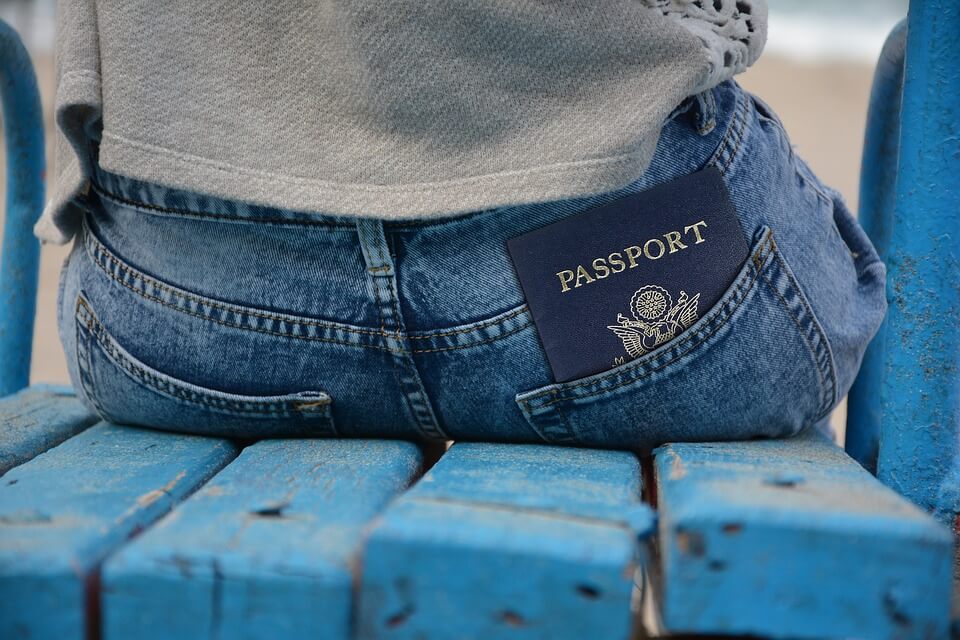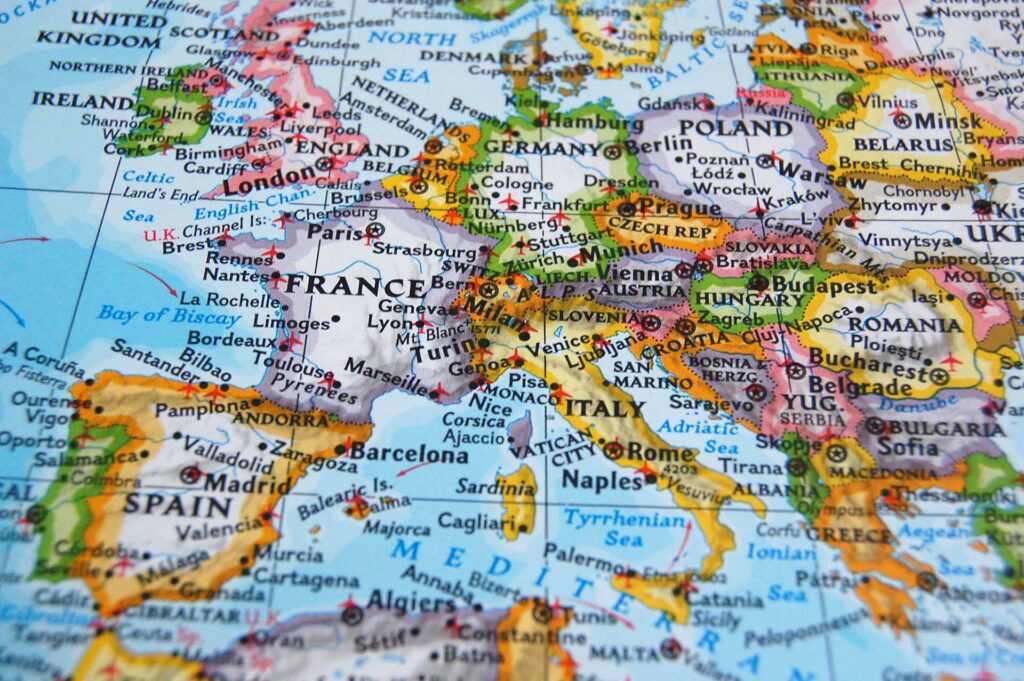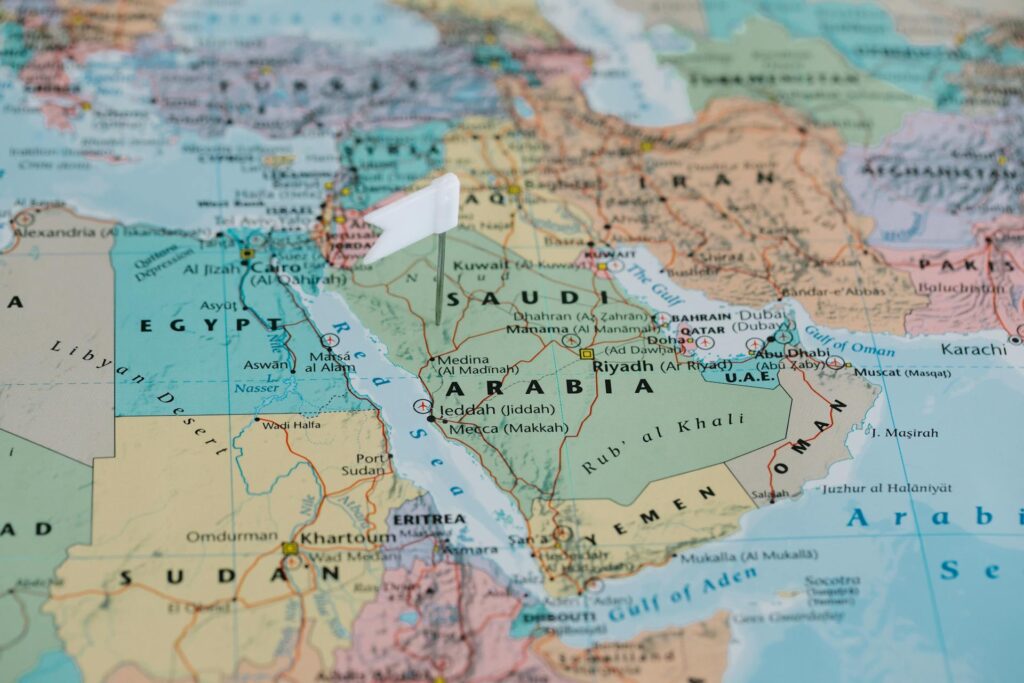If you’re thinking about moving to Greece, you should get familiar with the different regions in this country. But also with its people, their lifestyle, mindset, food, and healthy balance between work and leisure, which does not care too much about the hectic life of modern times.


Did you know that the so-called Hellenic Republic is the cradle of Western civilization, the birthplace of democracy, and a few other things that make our society what it is today? If you’re only vaguely familiar with these facts, are you interested in learning more about this beautiful country – the place “where it all began”? We’ve put together some useful information for you before you say goodbye to your family and friends and sail off to the Mediterranean. Keep reading and find out how to live in another country and why so many expats choose to stay.
What to Know Before Moving to Greece From the USA
Whether you choose to live in the most famous Blue Zone of the world, Ikaria, or in the capital, Athens, you will be surrounded by fantastic nature, mouth-watering dishes, unbelievable culture, tradition, and friendly people. This nation, situated in southeastern Europe, takes pride in plenty of exciting stuff, including an incredible number of landmarks, both ancient and modern. Is there anyone who hasn’t heard about the Parthenon, Metheori, or the island of Crete?
This is a fantastic place to settle down due to its sunny and warm climate, rich history that traces back to ancient times, unique traditions, and cuisine that is suitable for all tastes. Furthermore, this nation of many islands has an advanced high-income economy (which is still recovering from a series of crises that it suffered recently) and a high quality of life made possible by numerous amenities. With the help of our list of exciting things to know before you move abroad, you’ll get a clearer picture of this proud European nation.
Facts to Know
Without further ado, let’s have a look at the things Hellada is most famous for:
- It is home to more international airports than most other regions,
- The Parthenon temple of the Athens Acropolis is the most famous Greek landmark,
- It is one of the global leaders in olive production, specifically in the Peloponnese area,
- The capital, Athens, is one of the oldest cities in Europe and the world,
- Greek sovereign territory includes about 6,000 islands and islets widely dispersed in the Aegean and the Ionian Sea, of which only 227 are populated,
- The national sport is soccer, or as Europeans call it – football,
- The Greek language is one of the oldest European languages,
- This sunny country takes pride in 9,000 miles of coastline – that’s the 10th longest coastline in the world,
- The highest mountain is Mount Olympus (9,573 feet high) which was, according to Hellenic mythology, the home of mighty gods, Zeus included.
But, before you decide to get reliable international moving services and relocate, you should become familiar with some little less exciting, but still crucial aspects of living in the Hellenic Republic, including visa options, job possibilities, accommodation possibilities, and more.


How to Move to Greece – Visa Requirements
Americans don’t need to apply for a Schengen Visa to cross the borders as tourists as long as they have a valid passport. But, in addition to this, there are several necessary documents you should obtain, depending on the purpose of your stay.
If You’re Planning an Immigration to Greece, Know That Proof of Sufficient Funds Is Mandatory
Every visit to Greece requires a return airline ticket and proof of your financial sufficiency. However, if you’re relocating here, you’ll need some other paperwork necessary to secure a long-term legal stay:
- Application form for the appropriate visa (usually a D visa – dependant and freelance employment,)
- A passport valid for at least three months from the date of the planned entry,
- A copy of the first page of the passport and a recent photograph,
- Proof of medical insurance and a medical certificate,
- Excerpt from penal records.
An important tip: Don’t forget that most of these documents should be submitted in two versions – English and Greek.
Several Types of Visas
Depending on your needs and reasons why you want to enter the country, you can opt for several types of visas:
- Tourist/visitor visa (US citizens are not required to have one)
- For business purposes
- For medical purposes
- For cultural, sports, religious, and other purposes
- For members of official delegations
- For study, research, and different types of internship purposes
- For a wife/husband of a Greek citizen
- For under-age children
- Temporary visa extension for foreigners
For more information and a detailed explanation about necessary documents, visit the SchengenVisaInfo website and find out what requirements for US citizens are.


Is Living in Greece Expensive – a Quick Guide to the Cost of Living
The official currency in Greece is the euro, which is broken down into 100 cents. One US dollar is worth around 0.9 euros.
According to Numbeo.com (an online database which enables users to share and compare information about the cost of living between countries and cities), the cost of living for expats here is low in comparison to other popular places worldwide. On this website, you can compare Athens to NYC, for example, and find out how cheaper the capital of Greece is.
For example, if you want to eat out, a meal in a mid-range restaurant will cost you about $11. For a daily grocery purchase, you will spend about $35, and for utilities, you should put aside about $200 a month. If you use public transportation, your monthly costs will be, on average, $32, and if you can’t go anywhere without your vehicle, a liter of gasoline (about a quarter of a gallon) is about $2. To wear your favorite outfit, $300 should be enough every month, and for recreational activities, you should set aside about $45.
Accommodation in Greece
When it comes to housing options, you can choose to rent or buy a property. Foreigners, by law, can own property in most areas. But, before we jump into this, let’s find out what Numbeo says about renting prices per month:
- Apartment (1 bedroom) in downtown: $360
- Apartment (1 bedroom) outside of the center: $300
- Apartment (3 bedrooms) in the city center: $600
- Apartment (3 bedrooms) outside of downtown: $520
Buying Property in Greece
If you’re planning to buy your own house or apartment, you should know that prices naturally vary depending on the location and size of the property. However, here are some universal things you should take into consideration when purchasing a property:
- All buyers must have AFM, which is a tax roll number
- As a foreigner, you must file “origin of wealth” documents
- Transfer tax must be paid before the purchase
- Property tax is not applicable if the property is your first home. Otherwise, this annual tax is mandatory.
- A notary public should check and authorize all tax papers and deeds
- Lawyers should check if everything is regular and in accordance with law
There are several more steps that may occur related to fees or overdue taxes, and if you want to be sure what precisely you will need to buy your property, check out the global property guide.


Are There Jobs for Americans That Plan International Moving to This Country?
One of the main obstacles foreigners face when it comes to employment is the language barrier. It can be challenging to get a job if you’re not fluent in modern Greek. However, some fields are in demand for English native speakers, such as:
- English teachers
- Tourism
- Child care
- Manual or agricultural work
- Some multinational companies are often willing to employ English-speaking expats
Leave Your Current Job Only if You Have Found One in Greece
Since there is no easy way to start working in Europe as an American, you shouldn’t quit your current work position until you find a new one. Luckily, there are several options to get a job in Europe as American, mostly through online search engines and recruiting agencies. Some useful websites are:
Comprehensive Healthcare Insurance Is a Must
National healthcare services can cover expats after they pay taxes to some of the many healthcare organizations. For example, the largest social security organization is IKA.
Many foreigners choose international private medical insurance as the best option to reduce waiting times in public healthcare institutions. You can find all relevant information associated with the Greek medicare system anytime by visiting the website aetnainternational.com.


Which Greek City Is Best for Living After Moving Overseas?
Depending on your preferences and budget, you can choose where to live – in some of the inland cities or on beautiful islands. If you go for the former, here are some suggestions:
- Athens – besides being the nation’s capital, it’s also its financial, shipping, tourism, media, educational, cultural, commercial, arts, and entertainment hub.
- Thessaloniki – with its port, which is one of the largest in the world, this seaside city is an important economic hotspot in the region of Macedonia.
- Patras – the regional capital of Western Greece, it’s a major commercial and cultural hub.
- Larissa – located in the Thessaly region, it is one of the agricultural, industrial, and commercial centers of the country.
- Heraklion – it’s the capital of the magnificent island of Crete and boasts beautiful rural areas, stunning beaches, and perfect weather.
Decide Between Athens vs. Thessaloniki When Moving Internationally
At first glance, it may look like there is no significant difference between these two cities. But each of them has its own advantages and drawbacks. So, let’s take a closer look at them to make your choice easier.
Choose the capital city if:
- You’re a history aficionado,
- You enjoy fantastic city views from rooftop bars,
- You prefer nightlife, shopping, and cultural events.
Choose Thessaloniki if:
- You like being surrounded by young people (Thessaloniki has the largest university in the country – the Aristotle University,)
- You want to spend your leisure time on some of the prettiest beaches in the country,
- You’re a foodie.
Whichever city you pick to be your new home, keep in mind that, according to Expatistan data, the cost of living in Athens is 5% higher than in Thessaloniki.


Additional Things to Know About the Hellenic Republic Before International Moving
No matter how much you read about your prospective destination, additional research won’t hurt. Moving to Greece requires extra effort to get more information about other vital things, especially if you are moving with kids and have concerns about their education. Furthermore, this land is located in Europe and takes pride in unique habits, lifestyles, and cuisine. Yes, you’ve heard many times that Hellenic dishes are finger-licking, but you should find out a little bit more before you board the plane.
Know About Education Issues When Moving Abroad to This Country
Public schools shouldn’t be your primary choice, especially if you’re still struggling with the language. These institutions teach only in Greek, and they might be an excellent option for those who already have some language skills. That’s why many expats select English-speaking private international schools to enroll their children, although this kind of education has high tuition fees. Most of these educational institutions are located in the capital, with a few in Thessaloniki. If you were thinking about homeschooling, this option is, unfortunately, illegal, unless the child has special needs.
Living Is Easy With Excellent Cuisine and Makes Shipping Overseas Worthwhile
With over 250 days of sunshine all year round, Hellas is a place that is hard to resist. And foodies will confirm that, too. Hellenic cuisine is known worldwide, not just for its moussaka or souvlaki, but for feta cheese, which is the national cheese. It dates back to the Homeric ages – between 1,100 and 800 BC.
However, it’s not just the cheese that makes Hellenic cuisine so unique, but other famous dishes, too. This country has, luckily, a vast range of different plates. To mention just a few, note these down:
- Taramasalata (fish roe dip)
- Dolmades (stuffed tomatoes, peppers, and courgettes baked in the oven)
- Souvlaki and Gyros (grilled meat with veggies and sauces wrapped in pita bread)
- Baklava (a sweet made of honey, filo pastry, and groundnuts)
- Amygdalota (gluten-free almond cookie)
- Dolmadakia (stuffed grape leaves)
- Galaktoboureko (crispy filo sprinkled with melted butter)
Moving Overseas to Greece Is Easier With an Overseas Shipping Company
Moving abroad to Greece can be an exciting and fulfilling experience for those looking for a change of scenery and a new adventure. While it can be a complex process, with proper planning and research, it can be a smooth transition. Greece offers a unique blend of history, culture, and stunning natural beauty, which can provide a rich and diverse experience for those who choose to make it their home. So don’t hesitate to hire an overseas moving company such as Sunset International Shipping, and invest in our impeccable overseas shipping services – we’ll relocate you to Greece without a fuss!
FAQ
The cost of living in Greece varies depending on the region, lifestyle, and personal preferences. Generally, the cost of living in Greece is lower compared to other European countries. Housing and utilities are relatively affordable, while groceries and dining out can also be budget-friendly. However, taxes and social security contributions can be high, which can impact the overall cost of living. It’s important to keep in mind that the cost of living in popular tourist destinations such as Athens and Santorini can be higher than in smaller cities or rural areas.
Greece has several beautiful cities that offer a high quality of life and a unique lifestyle. Athens, the capital city, is a popular choice for expats as it has a thriving urban center, excellent transportation, and plenty of historical sites to explore. Thessaloniki, the second-largest city, is a bustling cultural and economic hub with a lively nightlife and stunning waterfront. Chania, located on the island of Crete, is a charming coastal town with a rich history and a laid-back lifestyle. Other cities such as Heraklion, Patras, and Corfu offer a mix of modern amenities and traditional Greek charm.
The public transportation system in Greece is generally reliable and affordable. Major cities like Athens and Thessaloniki have an extensive network of buses, metro, and trams, making it easy to get around. The Athens Metro is one of the most modern systems in Europe and connects the city center with the suburbs and the airport. In addition, many cities offer a public bike-sharing system, making it easy to explore on two wheels. Inter-city transportation options include trains and long-distance buses, with frequent connections to popular destinations throughout Greece. Taxis are also readily available, but it’s important to ensure the meter is running to avoid overcharging.
The job market in Greece has been challenging in recent years due to the economic crisis and high unemployment rates. However, there are still opportunities available, especially in industries such as tourism, technology, and shipping. Many expats in Greece work in teaching English, as there is a high demand for language education. It’s important to note that the Greek job market can be highly competitive, and speaking Greek is often an advantage. The cost of living in Greece is relatively low, but salaries may also reflect this. Expats may also consider starting their own business or working remotely for a foreign company to increase their employment options.
Greece has several reputable schools that offer high-quality education for both local and international students. The American College of Greece, located in Athens, is one of the oldest and most prestigious institutions in the country and offers a range of programs from elementary school to graduate studies.
The International School of Athens and St. Catherine’s British School are also highly regarded for their international curriculum and diverse student body. In Thessaloniki, Anatolia College is a leading institution that offers both Greek and International Baccalaureate programs. The Athens University of Economics and Business is one of the top universities in Greece and is known for its business and economics programs.
Greece is a country with a rich history, stunning natural beauty, and a vibrant culture that offers a variety of activities and experiences for tourists and locals alike. Athens, the capital city, is home to numerous historical sites such as the Acropolis, the Ancient Agora, and the National Archaeological Museum. The islands of Santorini and Mykonos are popular destinations for their beautiful beaches, scenic villages, and lively nightlife. The island of Crete offers a range of activities such as hiking in the Samaria Gorge, visiting the Palace of Knossos, and enjoying traditional Cretan cuisine. Additionally, Greece is renowned for its culinary scene, with delicious dishes such as moussaka, souvlaki, and fresh seafood.
The weather in Greece varies depending on the season and region. Summers are typically hot and dry, with temperatures often reaching over 30°C (86°F) in July and August. Coastal areas and islands are particularly popular during the summer months, with warm waters perfect for swimming and water sports. Winters in Greece are mild, with occasional rain and temperatures averaging around 10-15°C (50-59°F). Some areas, particularly in the north, may experience snowfall during the winter months. Spring and autumn are pleasant seasons with mild temperatures and fewer crowds, making them popular times to visit.
Greece is generally a safe place to live, with a low crime rate and a welcoming culture. The country has a well-developed infrastructure and a reliable public transportation system that makes it easy to get around. However, like any country, there are areas that may be more prone to crime or social unrest, particularly in larger cities. It’s important to take precautions to stay safe, such as avoiding walking alone at night in dimly lit areas, keeping valuables secure, and being aware of your surroundings. Additionally, Greece is located in a seismically active region, so it’s important to be prepared for earthquakes and follow local authorities’ guidelines in case of emergency.
The population of Greece is predominantly made up of ethnic Greeks, who account for over 90% of the population. However, Greece has a long history of cultural and ethnic diversity, with influences from neighboring countries and ancient civilizations. In recent years, there has been an increase in the number of immigrants and refugees, particularly from the Middle East and North Africa. This has led to a more diverse cultural landscape in larger cities such as Athens and Thessaloniki, with a variety of cuisines, languages, and customs. Greece has made efforts to integrate immigrants into society, but there are still challenges in addressing issues such as discrimination and social exclusion.
Finding housing in Greece can be a challenging process, particularly in popular tourist destinations where demand is high. However, there are several options available for those looking to rent or buy property. Real estate agents can assist in the search for a suitable property, and there are numerous online platforms and classified ads where properties can be found. It’s important to have a clear understanding of the local rental laws and regulations before signing a lease, as well as knowing the typical rental prices in the area. Expats may also consider joining local expat groups or online forums, which can provide useful information and advice on finding housing in Greece.
Greece has a rich culinary tradition, with a variety of dishes and flavors that reflect its cultural and historical influences. Tavernas are a popular dining option, offering traditional Greek cuisines such as grilled meat and fish, salads, and meze (small dishes). In Athens, Psyrri and Plaka are popular neighborhoods for dining, with numerous tavernas and restaurants offering a mix of classic and modern Greek cuisine. On the islands, seafood is a popular choice, with tavernas and restaurants offering fresh catches of the day. In Crete, traditional Cretan cuisine features dishes such as dakos (rusk topped with tomato and feta cheese) and hortopita (vegetable pie). In addition to traditional Greek cuisine, Greece has a growing food scene with a variety of international cuisines such as Italian, Asian, and Middle Eastern.
Greece has a well-developed transportation system that makes it easy to get around the country. In major cities like Athens and Thessaloniki, the public transportation system includes buses, metro, and trams, providing affordable and convenient options for getting around. Taxis are also readily available and can be flagged down on the street or ordered through a mobile app. For those looking to explore the islands, ferries, and catamarans are the most common mode of transportation, with regular connections to popular destinations. Renting a car or scooter is also a popular option, particularly in more rural areas or smaller islands, but it’s important to be aware of local traffic laws and road conditions.
Greece is known for its lively nightlife, with a range of options available for those looking to enjoy the evening hours. In Athens, the neighborhoods of Gazi and Psyrri are popular for their vibrant bar scene, while the coastal areas of Glyfada and Vouliagmeni offer upscale beach clubs and nightclubs. On the islands, Mykonos and Santorini are renowned for their bustling nightlife, with numerous clubs and bars offering a mix of international and Greek music. Thessaloniki, the second-largest city, also has a lively nightlife, with bars and clubs catering to a diverse crowd. The nightlife in Greece often starts late, with many clubs and bars not getting busy until after midnight, and can continue until the early hours of the morning.
Joining local clubs and organizations, such as sports teams, book clubs, or language exchange groups, can be a great way to meet new people with similar interests. Volunteering for community events or festivals is another way to get involved and meet locals. Expats can also consider joining expat groups or online forums, which can provide useful information and social opportunities. Learning some basic Greek phrases and customs can also help in making connections with locals. Finally, being open-minded and friendly, and showing a genuine interest in Greek culture and traditions, can go a long way in building meaningful friendships in Greece.
Greece has a wealth of beautiful parks and outdoor spaces, offering stunning natural scenery and opportunities for outdoor recreation. In Athens, the National Garden is a popular destination for locals and tourists alike, with shady paths, fountains, and a small zoo. The Pedion tou Areos is another green space in the heart of the city, offering walking and biking trails, sports fields, and a playground.
Mount Olympus, the highest mountain in Greece, is a popular destination for hiking and climbing, with stunning views of the surrounding landscape. The island of Crete is home to the Samaria Gorge, a beautiful natural park offering hiking trails and stunning scenery. Additionally, Greece is renowned for its beautiful beaches, with numerous options available for swimming, sunbathing, and water sports.
Getting involved in the local community in Greece can be a great way to meet new people, learn about the culture, and make a positive impact. One way to get involved is to volunteer for local events and festivals, such as the Athens Marathon or the Carnival of Patras. Joining a local sports team or fitness group can also be a great way to meet new people and stay active. Attending cultural events, such as concerts, theater performances, or art exhibitions, can provide opportunities to connect with like-minded individuals and learn more about Greek culture. Finally, expats can consider taking language or cooking classes, which can provide opportunities to meet locals and learn new skills.
Greece is home to numerous museums that showcase the country’s rich history, art, and culture. The Acropolis Museum in Athens is a must-visit, offering a stunning collection of artifacts and sculptures from the Acropolis site. The National Archaeological Museum, also in Athens, is one of the largest archaeological museums in the world, with a vast collection of ancient Greek art and artifacts. The Museum of Byzantine Culture in Thessaloniki is renowned for its collection of Byzantine art, while the Archaeological Museum of Heraklion in Crete houses artifacts from the Minoan civilization.
Other notable museums include the Benaki Museum in Athens, which showcases Greek art and culture from prehistoric times to the present day, and the Museum of Contemporary Art in Thessaloniki, which features works by Greek and international artists.
Learning some Greek before moving to Greece can be a valuable way to connect with locals and integrate into the culture. There are several resources available for learning Greek, including language schools, online courses, and language exchange programs. Language schools offer structured courses with experienced teachers, while online courses provide flexibility and self-paced learning options.
Language exchange programs, such as conversationexchange.com or italki, provide opportunities to practice speaking with native speakers. Additionally, books, podcasts, and apps such as Duolingo can be useful resources for building vocabulary and improving language skills. It’s important to practice regularly and immerse yourself in the language, such as by watching Greek movies or listening to Greek music, to improve fluency and understanding.
Greece has a public healthcare system that provides affordable and accessible medical care to its citizens and residents. Foreign nationals who are employed or self-employed in Greece, as well as those who are registered with the social security system, are entitled to use the public healthcare system. The public hospitals and clinics are generally well-equipped and staffed by trained medical professionals.
In addition to the public system, there are also private healthcare providers, which may offer shorter waiting times and more personalized care. It’s important to have health insurance when living in Greece, as some medical services may not be covered by the public system. Expats may also want to consider obtaining an international health insurance policy to ensure comprehensive coverage.
Moving to Greece can be an exciting and rewarding experience, but it’s important to be prepared and informed before making the move. Some of the most important things to remember when moving to Greece include obtaining the necessary visas and permits, finding suitable housing, and learning some basic Greek. It’s also important to be aware of local customs and etiquette, such as greeting others with a handshake or kiss on the cheek and respecting religious traditions. Additionally, it’s important to have health insurance and understand the healthcare options available. Finally, it’s important to be open-minded, flexible, and patient, as adjusting to a new culture and way of life can take time.










